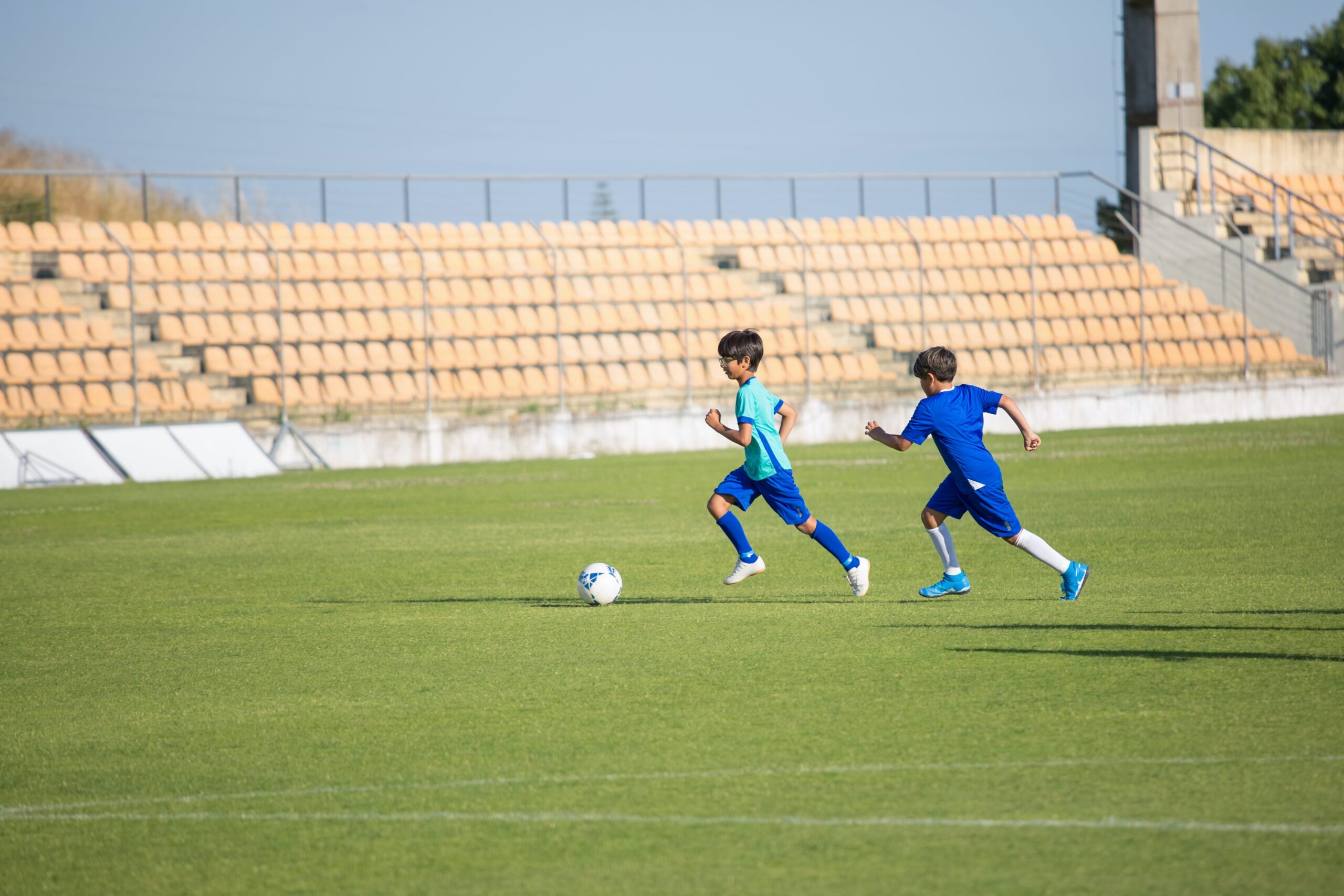Every young footballer dreams of becoming a football star, showcasing their skills on the field, and achieving new heights in their performance. It’s not uncommon to encounter performance plateaus along the journey—those frustrating moments when progress seems to come to a screeching halt. Read on to explore the reasons behind these plateaus and, more importantly, learn effective strategies to overcome them.
What Causes Performance Plateaus?
Performance plateaus can be due to various factors.
Lack of Variety in Training Routines
Young athletes often fall into the rut of routine. While consistency is key, sticking to the same training regimen for an extended period can lead to stagnation. The body becomes accustomed to the stress placed upon it, and improvements taper off.
Inadequate Recovery
Insufficient rest and recovery are common culprits. Young athletes, driven by passion and ambition, might overlook the importance of rest in the training equation. Overtraining can hinder performance and increase the risk of injury.
Nutritional Deficiencies
Proper nutrition is the fuel that powers athletic performance. Nutritional imbalances or deficiencies can impact energy levels, muscle recovery, and overall performance.
Psychological Factors
Mental fatigue, stress, and pressure can significantly affect an athlete’s performance. Football is not just a physical game; the mental aspect is equally crucial.
Strategies to Overcome Performance Plateaus
Diversify Your Training Routine
Mix it up! If your training routine has become monotonous, it’s time to introduce variety. Incorporate different drills, exercises, and training techniques to challenge your body in new ways. Engage in cross-training activities to enhance overall athleticism. Incorporating activities such as swimming, cycling, or agility drills can provide a refreshing break from the routine while promoting physical fitness and preventing boredom. This keeps things interesting and prevents the body from adapting and hitting a plateau.
Prioritize Recovery
Rest is not a weakness. Ensure you’re getting adequate sleep, allowing your muscles to recover and repair. Additionally, consider incorporating rest days into your training schedule. This doesn’t mean complete inactivity but rather engaging in low-intensity activities or activities that promote mobility.
Optimize Nutrition
Fuel your body for success. Work with a nutritionist to develop a customized meal plan that meets the specific needs of a young athlete. Pay attention to macronutrients, micronutrients, and hydration. A well-nourished body is better equipped to handle the demands of intense football training.
Set Realistic Goals
Break it down. Instead of focusing solely on long-term goals, break them down into smaller, achievable milestones. Celebrate the small victories along the way, enhancing your motivation and cherishing a sense of accomplishment.
Incorporate Mental Conditioning
Train the mind as you train the body. Work with sports psychologists or engage in mental conditioning exercises to build resilience, focus, and a positive mindset. Football is as much a mental game as it is physical.
Skill Refinement and Specialized Training
Plateaus can sometimes occur due to a lack of focus on specific skills. Identify areas of weakness or skills that need refinement and incorporate specialized training drills into your routine. Whether it’s improving ball control, enhancing passing accuracy, or refining defensive techniques, dedicating time to targeted skill development can elevate overall performance.
Periodization and Progressive Overload
Implement a periodized training program that includes phases of varying intensity and volume. Gradually increase the workload over time. This approach challenges the body without overwhelming it, promoting continuous improvement while minimizing the risk of burnout.
Monitor and Adjust the Training Load
Keep a training log to track performance, energy levels, and any signs of fatigue or overtraining. Regularly reassess and adjust your training load based on your body’s response. This proactive approach helps prevent prolonged plateaus by addressing issues before they become significant setbacks.
Team Building and Competition
Foster a sense of camaraderie and healthy competition within your team. Engaging in team-building activities and friendly competitions can reignite motivation and passion for the sport. Peer support and healthy rivalry can be powerful motivators to push through plateaus.
Reassess and Reset Goals Periodically
Regularly reassess your short-term and long-term goals. As you evolve as an athlete, your aspirations and capabilities may change. Adjust your goals accordingly, ensuring they remain challenging yet achievable. Periodic goal-setting provides a roadmap for continuous improvement.
Recovery Modalities
Explore various recovery modalities, such as ice baths, massages, or compression therapy. These techniques can aid in reducing muscle soreness, enhancing recovery, and preventing overuse injuries. A well-rounded recovery strategy is integral to sustained high-level performance.
Seek Guidance from Coaches
Collaborate with your coaches to analyze your performance, identify areas for improvement, and develop a personalized training plan. Coaches can provide valuable insights, guidance on technique, and motivational support to help you navigate through plateaus.
Stay Passionate and Enjoy the Process
Remember why you started playing football in the first place? Reignite your passion for the game and find joy in the process of improvement. Embracing the journey, regardless of occasional plateaus, will foster a positive mindset and a long-lasting commitment to the sport.
Restorative Sleep Habits
Prioritize quality sleep as a fundamental aspect of recovery. Establish consistent sleep patterns, create a conducive sleep environment, and ensure you are getting the recommended hours of sleep for optimal physical and mental well-being. The recommended hours of sleep vary based on your age:
- Preschoolers (3-5 years): 10-13 hours per day, including naps
- School-age children (6-12 years): 9-12 hours per day
- Teenagers (13-18 years): 8-10 hours per day
Incorporating these additional elements into your football training regimen creates a comprehensive approach to overcoming performance plateaus, setting the stage for continuous growth and achievement in the world of football.
Concluding Remarks
Overcoming performance plateaus in football training for young athletes requires a holistic approach. Remember, plateaus are not roadblocks but opportunities for growth and improvement. Your journey to football greatness is a dynamic process. Embrace the challenges, stay resilient, and keep chasing those goals on and off the field.
Kickstart your young champion’s journey to peak performance with Kinetic Sports Performance and Football University. Our expert coaches specialize in dynamic football training, incorporating innovative techniques to help young athletes overcome plateaus and reach new performance levels. Contact us today to learn more!
Contact Us Today for More Information
Mark Devlin Dan Ford
Mark@Inflighting.com Dan@Inflighting.com
(281) 202-4625 (318) 572-3212





Leave a Comment